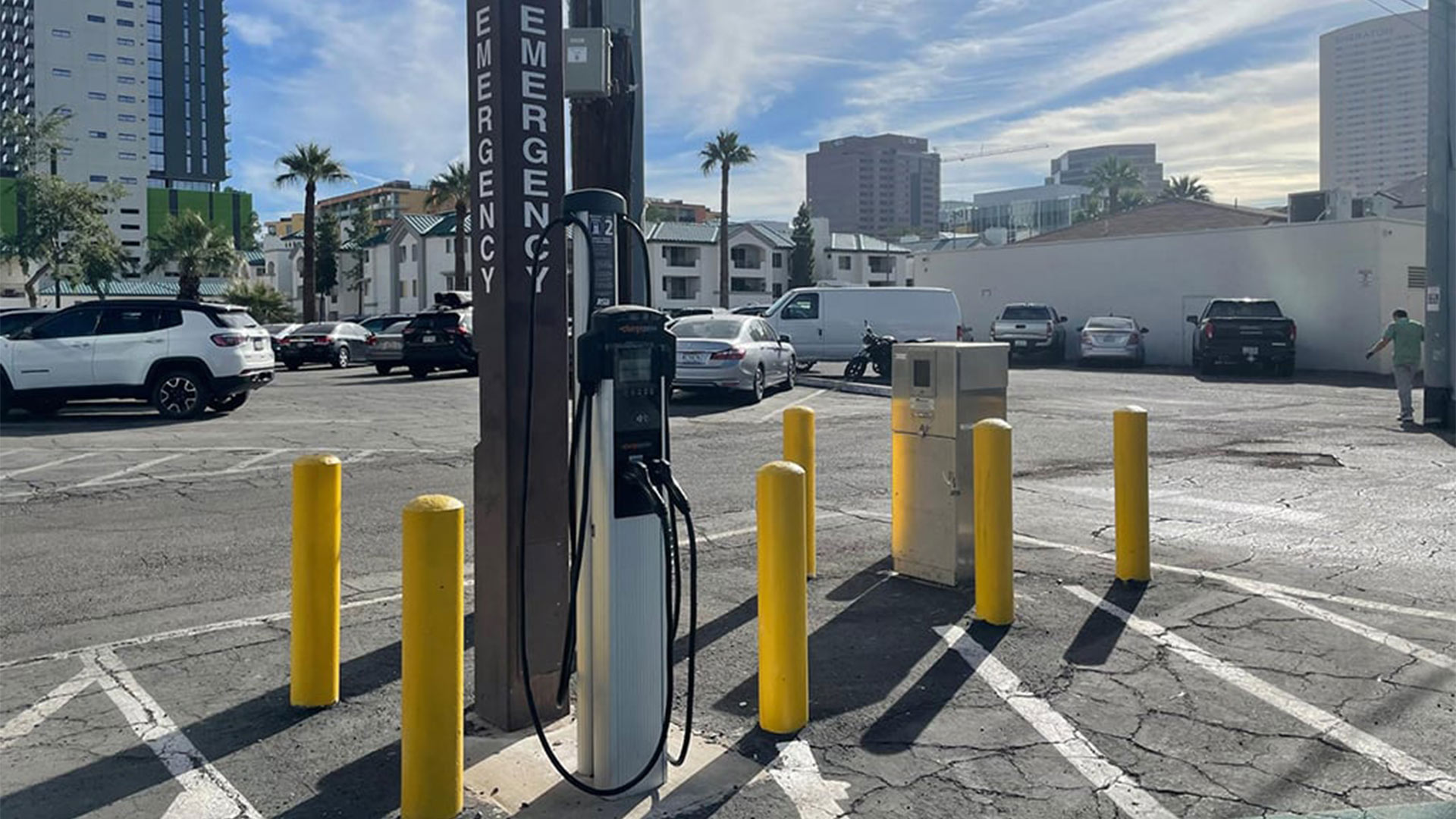 More electric-vehicle charging ports will be installed along interstate highways in Arizona as early as 2024
More electric-vehicle charging ports will be installed along interstate highways in Arizona as early as 2024
Electric vehicle drivers across Arizona can expect more chargers on interstate highways in the next few years, which means longer road trips.
The Arizona Department of Transportation will oversee the upgrade of existing chargers and installation of new ones along five interstate highways, thanks to $76.5 million in funding via the Bipartisan Infrastructure Law that was signed into law in November 2021.
“The goal is to develop a network of EV fast chargers to facilitate long-distance EV travel and encourage EV adoption by more users,” according to a fact sheet with ADOT’s Electric Vehicle Infrastructure Plan.
The expansion will help EV drivers avoid range anxiety: the fear of not making it to the next charging station.
The plan covers Interstates 40, 17, 10, 8 and 19. For now, no charging stations are proposed for the Interstate15 corridor in the northwestern corner of the state.
Upgrades to eight existing charging stations will start in 2023, and in 2024, ADOT will begin the process of installing 13 more. They’ll be placed about every 50 miles and within 1 mile of an interstate, ADOT spokesperson Doug Nick said. Each station will have at least four EV fast chargers capable of charging most vehicles in about 30 minutes.
Nick said ADOT had “no trouble finding potential infrastructure to meet the criteria” to implement this plan.
The stations will be independently owned and operated. Station owners will pay 20% of construction costs and federal funding will cover the other 80%. ADOT is coordinating the work.
Arizona currently has 903 public EV charging stations with more than 2,400 charging ports.
There are nearly 125,000 charging ports nationwide, according to the Alternative Fuels Data Center. The Bipartisan Infrastructure Law aims to increase the current number of chargers about four times and create a “nationwide network of 500,000 EV chargers by 2030,” according to a February 2022 memorandum from the U.S. Department of Transportation.
For Jim Stack, the president of the Phoenix Electric Auto Association, this is welcome news.
“I’m real big on the environment, and I just love the fact that we aren’t burning oil. We aren’t importing oil, we aren’t digging it up. We aren’t spilling it all over,” he said.
Stack, who has driven electric cars for about 20 years, said he’s amazed by the technological advances that have led to the growth of EVs and the various solutions available to charge his cars.
He said he started off converting his own vehicles and installed solar panels on his home to power them.
“I can drive on the solar that comes off my own roof,” Stack said. “That’s like a miracle.”
Other Arizona drivers also are charged up by the plan, said Diane Brown, executive director of the Arizona Public Interest Research Group Education Fund, an independent nonprofit that researches and educates on public interest topics.
“The ADOT plan is one that we widely support,” she said, adding that the timing for the project “coincides nicely” with growing interest in EVs in Arizona.
In 2017, about 7,200 electric vehicles were registered in Arizona. In the past five years, the number has increased more than five times: at least 40,740 as of June 2022.
“Consumers that own and drive an electric vehicle stand to save thousands of dollars annually through the reduction of fuel costs and operating and maintenance costs,” Brown said. “Additionally, gas-powered vehicles contribute to air pollution and adverse public health impacts such as asthma. Therefore, electric vehicles also offer air and public health benefits.”
The plan came together fairly quickly, she said. In August, ADOT sent its draft proposal and received federal approval and immediate access to $11.3 million in funds the following month.
The Bipartisan Infrastructure Law allocated $1.2 trillion to infrastructure development nationwide. About $550 billion is new spending. Although the federal government already spends millions on infrastructure, this new spending is earmarked for roads, bridges, mass transit, water infrastructure broadband and more.
“Congress has spoken,” said ADOT’s Nick. “And so when the money was made available, they were hearing from their constituencies, presumably, to see that this is something that needed to be addressed. So we’re responding to that.”

By submitting your comments, you hereby give AZPM the right to post your comments and potentially use them in any other form of media operated by this institution.